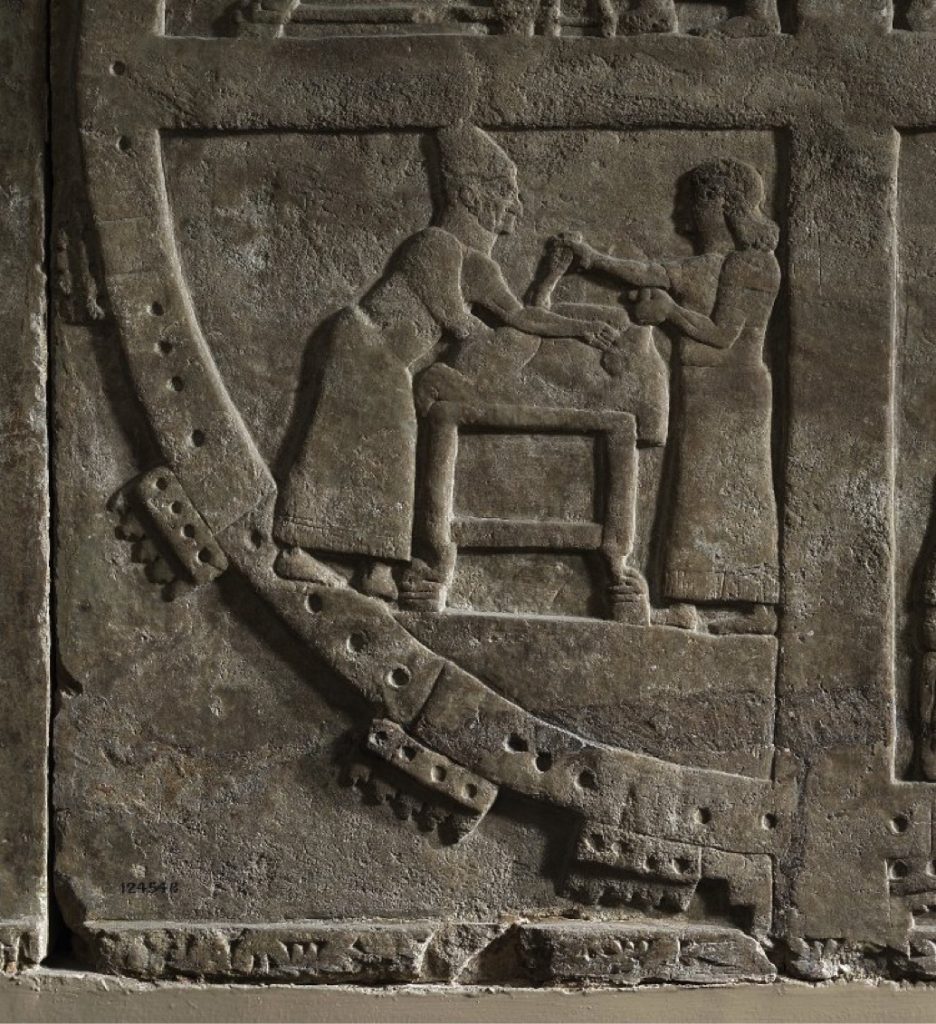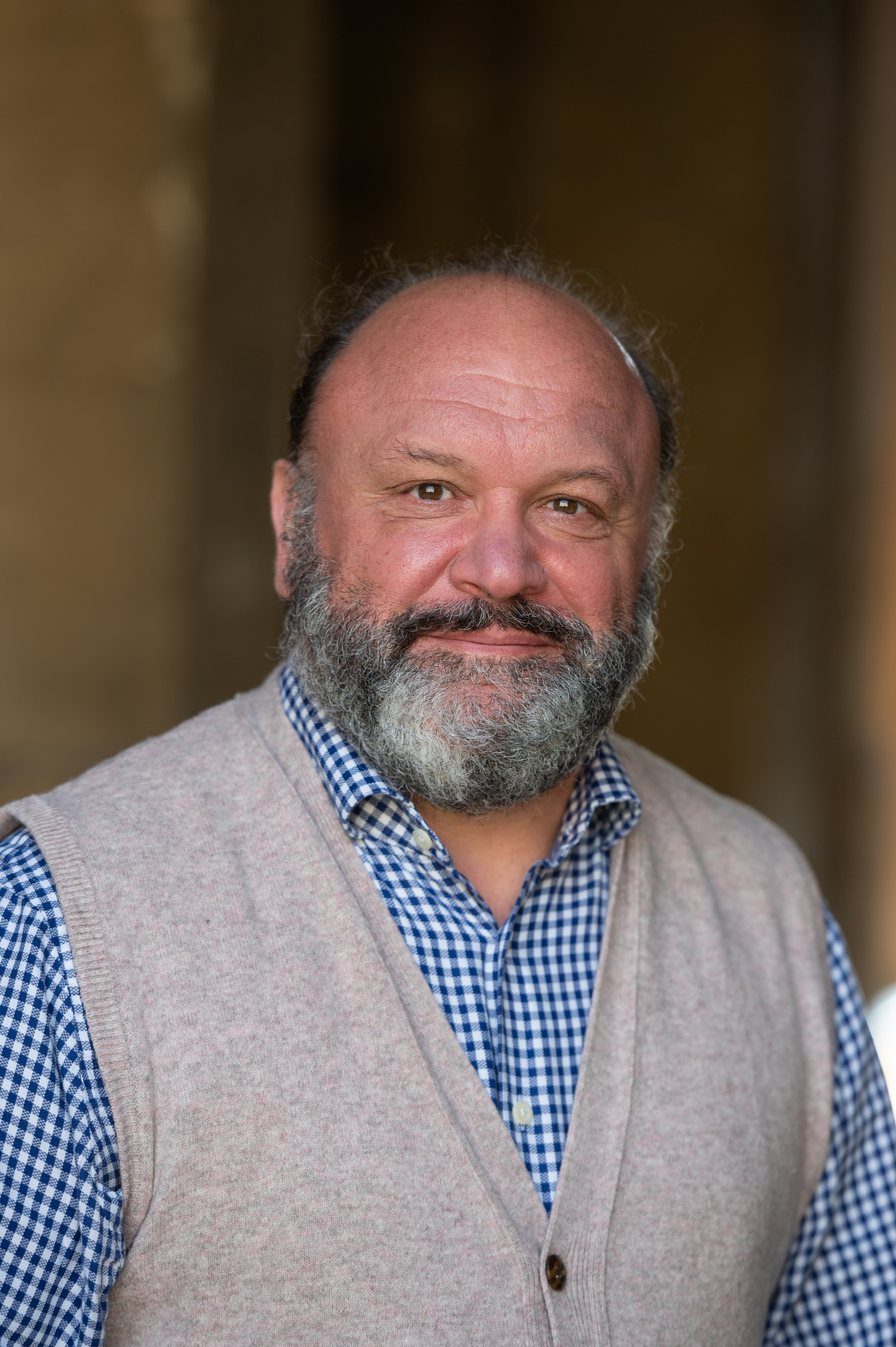Former Junior Research Fellow at Queen’s Dr Selena Wisnom has returned to the College as a Fellow Commoner (visiting academic). She’s recently been putting her research into action by demonstrating the art of ancient liver divination in the College kitchen. Sounds strange? We asked her to explain a bit more about what this involves and why it provides a valuable window into the ancient world.
What is divination and why was it important in ancient Iraq?
The ancient Assyrians and Babylonians believed that they could communicate directly with the gods. Divination is the decoding of divine will, which was revealed in all sorts of ways, from the movements of the stars in the sky to those of ants on the ground, from the contents of dreams and exclamations people uttered while they were asleep to more unusual events like a cow giving birth to a calf with two heads. In this way they believed that the gods would announce the death of kings, floods and famines, successful battles, or personal gains and general good fortune. But people could also ask questions directly, and this is what liver divination was for.
You recreated an Assyrian ‘liver divination’ in the College kitchen. Can you explain what this involved and what it can tell us about the ancient culture where it originated?
I obtained a couple of livers from one of the Fellows who keeps sheep in a field next to his house. This was an ideal opportunity to compare the ancient texts that I study with what the diviners would have seen in real life. I asked the livers a question and then analysed them in the same way that the ancient Assyrians would have done, looking for positive and negative signs, and then looked up the results in a series of clay tablets that explain what individual omens mean. If there are more positive signs and negative signs the answer to the question is yes, whereas if it is the other way round the answer is no.
The Assyrians were keen on asking political questions, so I asked one that I thought they would be interested in if they were around today: “Will a general election be called within the next 12 months?” In the past I have asked about the election of Donald Trump, the French elections everyone was worried about in 2017, and Brexit. But it has to be a question with a time span of about a year, and so since we don’t yet know when the next election will be in the UK I decided to ask if it was going to happen before I can find out who will win!
Engaging in the same procedure as the ancient scholars has taught me a huge amount.
They went to great lengths to make sure that they could trust the answer. Liver divination was to them a kind of scientific process that operated according to strict rules. There was no scope for diviners to just make up whatever they thought the king wanted to hear, and their work was usually checked by others to make sure they had calculated the answer correctly. We see in this a sincere desire to discover answers that was subject to testing and rigorous standards. We, of course, would not search for scientific results inside the entrails of a sheep, but I think we can still respect the efforts that the ancient scholars made to search for the truth in a way that made sense within their worldview.
Divination is one of the earliest forms of science in history, in that it is a way that humans have systematically tried to make sense of the world around them and derive principles about how it worked.
What features of the practice of reading appear regardless of whether you are reading an ancient text, poem, map, or ‘reading’ an object (like a liver)?
So many! Reading a liver is just like reading a manuscript – you can do a lot from photographs, but there is no substitute for holding the real thing in your hands, as you see so much more when you can turn it in the light and look at it from different angles. It’s like reading a map in that the liver is charted like a terrain with each of its parts named. The words that the texts use for ‘area’ is even the same as the word for ‘land’ or ‘country’. You have to orientate yourself within it, look at where the different lines are pointing, and follow their indications as you journey around the liver in a set route. And the texts that describe what the various markings mean are like poetry – they use many of the same principles as the great works of Babylonian literature, and are full of fascinating images and associations.
Some of your work aims to build stronger ties between academia and theatre; why are you particularly interested in using performance to understand ancient cultures?
Performance makes it real. It can be difficult to imagine what these texts really meant to the people who wrote them, but when we try to recreate what they describe it brings the whole culture to life. This is true both in making these unknown corners of the past accessible to a general audience, as I have done with my stage plays which are set in the ancient Assyrian court, and also in the process of research. Both recreating a liver divination and helping a theatre company stage a scene from history make me see my research in a whole new light, raise questions I would not have thought of otherwise, and suggest intriguing new answers to them.
You are on the board for the Centre for Manuscript and Text Cultures. How does the interdisciplinary approach of the Centre benefit research?
CMTC is a constant source of ideas. Getting together specialists from different fields in the same room and asking them to reflect on similar questions is a hugely creative process that challenges me to think about my subject in new ways and make connections across time and space. Seeing how other scholars approach their material suggests different approaches I can try with my own, and brings me into contact with the latest thinking in other disciplines. I always learn so much from the exchanges that take place there. We just held a conference about silence in manuscript cultures and I’ve come away with ideas for at least two articles, even though I had never thought about this topic before!
You are a Fellow Commoner at Queen’s for Michaelmas Term. What will you be doing during your time in Oxford?
I’m taking advantage of the intellectual buzz here to get stuck into new projects, including one on the materiality of cuneiform tablets, and another about how astrological reports would have been understood in their historical context.
The interdisciplinary environment of the College is hugely stimulating.
I often come back from lunch with new ideas after talking to Fellows in politics, philosophy, or maths, just to name some examples from the past few weeks alone. And of course I am continuing my work on liver divination, which I began when I was a Junior Research Fellow here. What interests me is why the texts connect certain features on the liver with certain outcomes. There is a symbolic system at work here which can tell us a lot about the way the ancient Mesopotamians thought and how they constructed the world. Although it may not make much sense to us today and initially seems strange, it is coherent and logical on its own terms, and it is thrilling when a chain of reasoning that has been lost for more than 2,500 years suddenly becomes clear.
What do you enjoy most about your work?
That sense of discovery, being the first person to understand something for over two millennia since it disappeared. I also really enjoy trying to understand the human dimension of the texts and the people who wrote them, seeing how what seems strange to us made perfect sense to them, while at the same time the strangeness of their world can make ours seem stranger still.
Can you recommend a book?
I have a book coming out with Penguin in September 2024: The Library of Ancient Wisdom. It’s an introduction to Mesopotamian culture through the lens of an Assyrian library that collected it all, covering religion, magic, medicine, divination, literature, war, lamentation, and the lasting influence of Mesopotamian culture in world history. It’s aimed at a general audience, so you should be able to read it on the beach as well as in the undergraduate classroom.
In the meantime, I would recommend Eckart Frahm’s Assyria, which is an excellent historical account that traces the rise and fall of the world’s first empire. A great introduction to anyone interested in this fascinating world.
Selena’s book can be pre-ordered here: https://www.penguin.co.uk/authors/283372/selena-wisnom.



